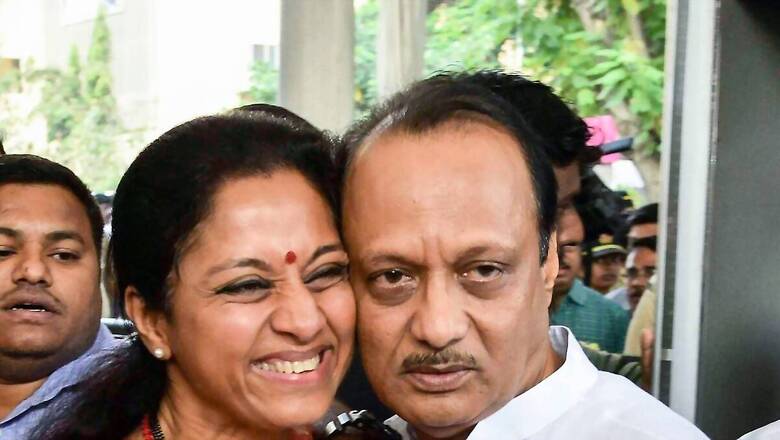
views
Maharashtra’s Deputy Chief Minister Ajit Pawar, in a candid admission on a Marathi news channel, admitted that his decision to field his wife Sunetra Pawar against his cousin Supriya Sule in the Baramati Lok Sabha constituency was a grave error in judgment.
Sule, who is the daughter of Nationalist Congress Party (NCP) supremo Sharad Pawar and a three-term Member of Parliament, emerged victorious in the polls, defeating Sunetra Pawar by a significant margin of 158,000 votes.
The high-profile electoral battle, which captured the attention of the state, saw Ajit Pawar’s faction of the NCP suffer a major setback. Not only did Sunetra Pawar lose the Baramati seat, but Ajit Pawar’s NCP also faced defeat in the Shirur constituency. Both these seats, located in the politically crucial region of western Maharashtra, were won by candidates backed by Sharad Pawar’s faction of the NCP, further solidifying his hold over the party and the region.
Speaking to a Marathi news channel during his ongoing state-wide ‘Jan Samman Yatra’, Ajit Pawar regretted his decision to mix family ties with political ambitions. “Politics should not be allowed to enter the home. This is where I made a mistake. I should not have fielded Sunetra against my sister,” he admitted. His acknowledgment reflects the growing realisation within his camp that the electoral strategy backfired, costing them not just seats but also potentially long-term voter loyalty.
Ajit Pawar clarified that the decision to field Sunetra Pawar was not solely his but was endorsed by the party’s parliamentary board. However, he admitted that in hindsight, the move was a mistake. “You cannot do anything once an arrow is released from the bow. Now I feel it should not have happened,” he added.
The defeat in Baramati, a constituency that has been a stronghold of the Pawar family for long, has triggered questions about Ajit Pawar’s leadership and his ability to command the support of NCP’s traditional voter base in western Maharashtra. Despite his considerable influence and efforts to rally support, the outcome of the election indicates a shift in voter sentiment, likely influenced by the infighting within the party and the involvement of family members in the contest.
Ajit Pawar’s remarks came as he continued his ‘Jan Samman Yatra’, a tour designed to promote various welfare schemes of the state government. One of the key initiatives highlighted during the tour is the ‘Mukhyamantri Majhi Ladki Bahin Yojana’ (MMLBY), which is aimed at providing financial assistance to women across Maharashtra. Under this initiative, the government plans to transfer Rs 1,500 monthly directly to the bank accounts of eligible women, enhancing financial security for countless families.
As Ajit Pawar attempts to rebuild and reassert his influence in Maharashtra’s political landscape, the lessons from the Baramati contest serve as a reminder of the complex interplay between family dynamics and electoral politics. The coming months will be crucial in determining how this episode shapes his political future and that of the NCP in the state.



















Comments
0 comment